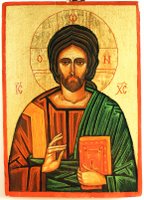These verses are very encouraging words from Paul to the Philippians; and to me in the light of what was on my mind lately.
Paul letter to the Philippians is a letter on Christian practice and experience. Paul is very close to these converts in Philippi and his letter comes to them in joy and familiarity. He expresses his earnest hope that the Philippians would abound more and more in knowledge, and be without offence to the day of the Lord. The letter is filled loving exhortation to the carrying out various Christian duties and the exhibition of Christian virtues, to holy living, and to an effort to make great attainments in the divine life.
And how Phil 3:12-14 an encouragement to all of us?
Not that I have already obtained - the aorist obtained indicates that we do not all at once attain a fully sanctified life at the point of conversion - nor have we been made perfect - nor have we in the present state, already perfect - but I press on to take hold of that for which Christ took hold of me - but to pursue the eschatological goal as a response to Christ's work. Brothers, I do not consider myself yet to have taken hold of it. - we may not have yet attained heaven, the finish line - But one thing I do: - we don't give up, we don't lose heart in our trials and tribulation - Forgetting what is behind and straining toward what is ahead, - we do not worry about how we started the race, we do not distract ourselves with other things, like the runner in the lead who does not look back to see where his competitors are but - I press on toward the goal to win the prize for which God has called me heavenward in Christ Jesus - to run with one goal in mind, that is to complete the race to win the prize, the ultimate reason for running: to gain Christ fully and completely.
The preacher asked us one question, "what is your goal in life?"
My goal in life is to gain Christ fully and completely. Like in all races, it is not going to be easy. It will take a lot of hard work, disappointments, lessons and pain. But also in all races, we have each other to support us and cheer us on, to encourage and motivate us to run and run to win the prize. How marvelous it will be on that day when we congratulate each other in winning the race.
Maeghan
Picture courtesy of Julia Esmilde (http://jewels.esmilde.com/2006/03/run-eddie-run.html)


























 In my recent mulling over justification, I think I have made what would be called a word-study fallacy. I most probably would have paid too much attention on the word with regards to its common technical meaning without taking into account its exclusive usage and meaning in the Christian context.
In my recent mulling over justification, I think I have made what would be called a word-study fallacy. I most probably would have paid too much attention on the word with regards to its common technical meaning without taking into account its exclusive usage and meaning in the Christian context. Going back to the original Greek word of justification, which is δικαιοσύνη, the
Going back to the original Greek word of justification, which is δικαιοσύνη, the  I still have a question, which I am still not being satisfied with an answer.
I still have a question, which I am still not being satisfied with an answer.